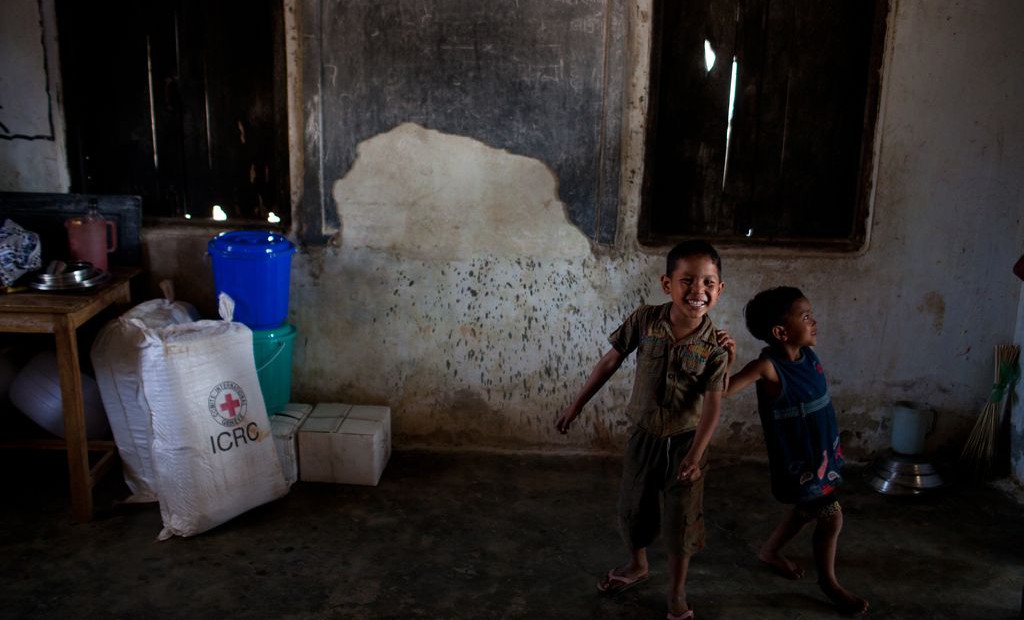Appeal amount increases in Philippines, Bangladesh and Myanmar
Amid continued volatility due to new or protracted armed conflicts and other situations of violence, humanitarian needs across the world continue to grow. This is especially true in Africa, the Middle East and Asia and the Pacific. In India, the ICRC visits people detained in connection with the prevailing situation in Jammu and Kashmir and works to promote international humanitarian law (IHL) and humanitarian principles. It also works in partnership with the Indian Red Cross Society to enable it to respond more effectively to humanitarian needs in the country.
In 2015, in order to continue its work here, the ICRC regional delegation in India, Bhutan and the Maldives plans to spend CHF (Swiss Francs) 11.214 million. Globally, the institution presented a budget of 1.6 billion Swiss francs (1.26 billion euros, or 1.68 billion US dollars) — its highest ever — for 2015 to meet vastly expanding humanitarian needs. The ICRC would require additional funding to be able to meet this budget and has therefore launched the 2015 Emergency Appeals for funds to the tune of CHF 1,379.3 million. This figure represent an increase of CHF 274.8 million (+ 24.9%) compared with the initial Emergency Appeals 2014.
The appeal amount for Asia and the Pacific stands at to CHF 216.9 million, 16% of the overall appeal. This is CHF 14.8 million higher than the total appeal amount in 2014, CHF 202.1 million (initial budget). The significant increases are: Philippines (+ CHF 4.7 million or + 35%); Myanmar (+ CHF 4.5 million or + 18%); Bangladesh (+ CHF 4.0 million or + 97%) and the significant decreases include: Afghanistan (- CHF 2.3 million or – 3%) and New Delhi.
The 2015 Emergency Appeals reflect current trends in the global environment and take account of the projected humanitarian needs in 80 countries worldwide. Even as the appeal amount has increased in many parts of the world, in India, Bhutan and the Maldives, there has been a decrease of CHF (Swiss francs) 1.1 million or 9% in the appealed-for figure.
Detailed budgets for Asia and the Pacific.
Globally, there are massive humanitarian needs in Syria, Iraq, Afghanistan, the Central African Republic (CAR), the Democratic Republic of the Congo (DRC), the Gaza Strip (occupied Palestinian territory), Libya, Mali, Somalia, South Sudan, Ukraine and Yemen.
The ICRC’s objectives in South Asia for 2015:
India:
- Visit detainees held in relation to the prevailing situation in Jammu and Kashmir with an aim to monitor their treatment and living conditions, and ensure improved health-care services from the authorities concerned
- Work to facilitate Indian authorities, security forces and civil society representatives further their understanding and acceptance of humanitarian principles, IHL and the ICRC’s neutral, impartial and independent humanitarian action
- Work to ensure that disabled persons in India benefit from the improved services of the national physical rehabilitation sector, which includes centres directly supported by the ICRC, and from social reintegration support, such as sports activities
- Support the Indian Red Cross Society and the Maldivian Red Crescent and help them develop their capacities to conduct first-aid training, family-links services and/or information campaign
Targets in India
Afghanistan: The ICRC appeal amount in Afghanistan too has decreased, but the conflict between the Afghan government and armed groups is intensifying. Humanitarian needs are great as civilians bear the brunt of the fighting. In 2015, the ICRC in Afghanistan will maintain its focus on ensuring respect for IHL and addressing the needs of conflict-affected communities. In light of security-related issues and the relocation of some ICRC staff to a support office in Tajikistan in 2013 for security reasons, the organization will strengthen its partnerships with the Afghan Red Crescent Society and other local actors in order to implement its activities.
Bangladesh:
The situation in Bangladesh has stabilized since the February 2014 elections, but daily life remains at risk of disruption by general strikes (hartals) and/or incidents of violence. In 2015, the ICRC delegation will pursue its dialogue and nurture its working relations with actors of influence in Bangladesh to further cooperation in providing humanitarian assistance to violence-affected communities and to people deprived of their freedom and upholding humanitarian principles and IHL. It will work with its main partner, the Bangladesh Red Crescent Society, which will receive support for developing its capacities to: provide assistance to victims of violence/disaster, specifically in the areas of primary health care, first aid, livelihood support and restoring family links; and promote IHL and humanitarian principles.
Sri Lanka:
Sri Lanka’s recovery from the armed conflict, which ended in 2009, continues. The Sri Lanka delegation will focus on deepening its working relationships with national authorities and institutions, and expanding cooperation with them in addressing the needs of people still affected by the past conflict – the families of missing persons, economically vulnerable returnee or resettled households, and rehabilitees – and improving the situation of people deprived of their freedom.
ICRC operations are financed entirely through voluntary contributions from the States party to the Geneva Conventions, the National Red Cross and Red Crescent Societies, private and public sources and supranational organizations.
Resources:
ICRC presents record budget for 2015 to meet vastly expanding needs
ICRC emergency and headquarters appeals: Key data for 2015
To read more about ICRC funding click here
ICRC New Delhi




